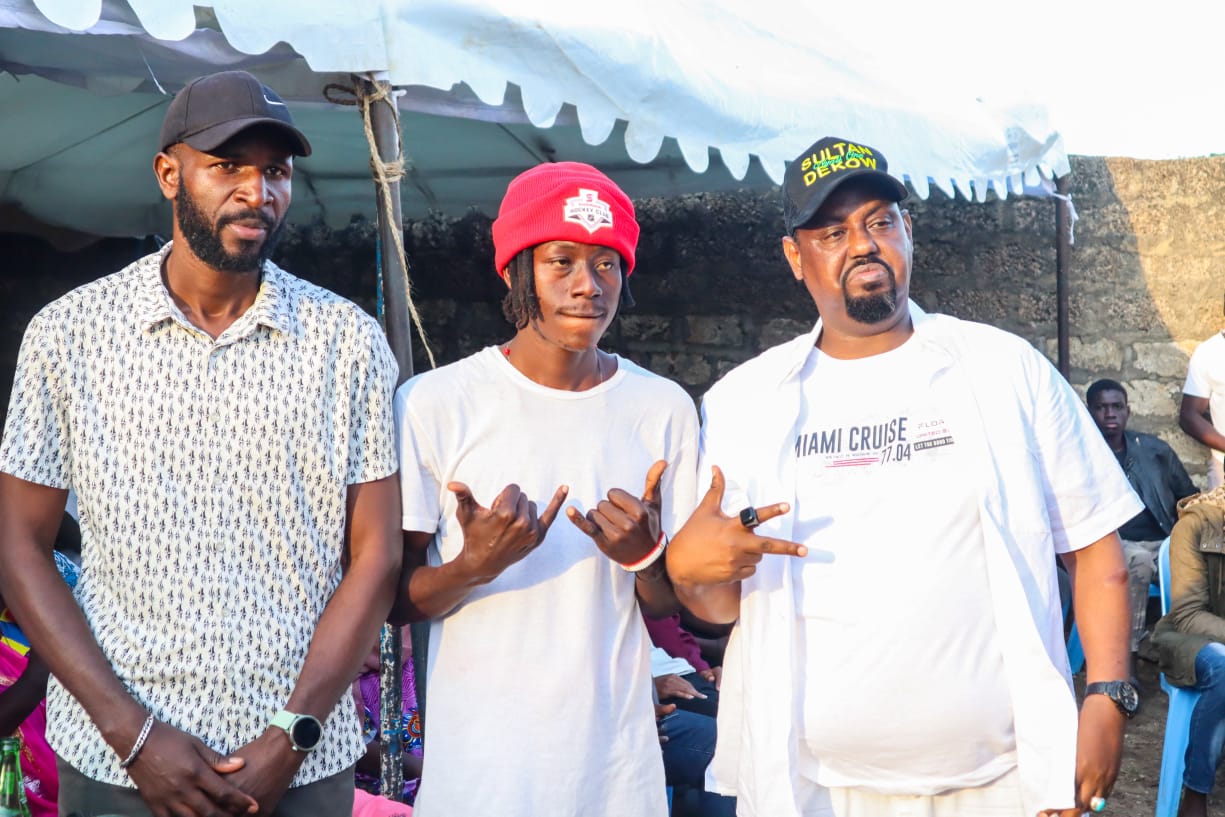 Edward Okello, Peter Macharia and Abdikadir Dekow in
Nyali on Saturday / BRIAN OTIENO
Edward Okello, Peter Macharia and Abdikadir Dekow in
Nyali on Saturday / BRIAN OTIENOKenya has dodged a huge security crisis with the burying
of the hatchet by Inspector General Douglas Kanja and National Police Service
Commission chairman Amani Komora, a security expert has said.
Abdikadir Dekow said on Sunday security matters are sensitive and need utmost collaboration, especially where
morale and the welfare of the servicemen and women is concerned.
“In security there must be uniformity in programme staking. There must be decision-making that is from one source, and which is
well discussed before execution,” he said, hailing the resolution of
differences between Kanja and Komora.
The former Interpol officer said once there are differences in policing and several arms issue their own directives and
orders, then fighting crime becomes difficult.
“Infighting demoralises police officers. Once
officers see that their commander and their employer do not work together, some
incompetence in the service creeps in and some fear takes over because officers
feel there is nobody to back them when there are issues of concern that emerge,”
Dekow, who is eyeing the Nyali MP seat, said.
Kanja and Komora on Friday committed to working
together professionally and resolving any disputes amicably should any arise.
This came after weeks of push and pull over the
mandate of the two entities, especially regarding the police officers’ payroll,
said to be about Sh60 billion annually.
The payroll is a human resource function vital for
the recruitment, promotion, and disciplinary actions of the police officers.
The NPSC claims payroll management is integral to
its mandate as the employer, while the IG’s office has maintained control.
The disagreement has led to a court petition and
calls for mediation by the Interior Ministry.
However, on Friday, the commission and the service
met for over five hours at the School of Government in Mombasa and resolved to
work together amicably but did not discuss the payroll issue, saying there was
limited time.
“We have agreed to chart out a new chapter in
terms of how we relate, with more collegiality and with more respect to the
different mandates that are bestowed on us as constitutional offices,” Komora
said. He promised there will be another round of talks over the payroll.
Kanja said, “Together we will continue to build a
police service that is trusted by the people and respected for its professionalism,
discipline, and unwavering dedication to maintaining law order and safeguarding life
and property.”
Dekow said police officers should feel they will
be victimised if their commander and employer do not work together in harmony,
and thus will not be effective or efficient in fighting crime and maintaining
law and order in the country.
“Officers will feel they will be sacrificial lambs
should misunderstanding between their commander and employer persist,” he
said.
He also hailed the promise of transparency in the
imminent police recruitment exercise.
Komora said their Saturday discussion was mainly
focused on the recruitment of 10,000 additional police officers.
“We are well aware that the nation requires to be
secured and we have to progressively beef up our numbers within the NPS so that
we move towards the best international practices,” he said.
Dekow said international best practices focus
mainly on one’s competence and not necessarily physical structures.
“That is why officers undergo aptitude tests
before being recruited. Aptitude tests show one’s level of reasoning and how
they approach difficult matters. That’s the most important test which is then followed
by health test where one’s physical abilities are considered," he said.
“These other matters of physical attributes like
the teeth, height, feet and other features are secondary and do not matter
much.”
He urged the NPSC to recruit more cadets,
urging more focus on already existing officers who have enhanced their knowledge
through training courses or university education.
Dekow said degree holders should be given more
prominence because they have management skills in them.
Komora said the upcoming recruitment will be guided by the 2025 regulations, which were developed pursuant to section 28 of the NPSC Act to address the gaps identified in the earlier regulations of 2015, while incorporating emerging issues in policing and human resource management.
He said they will ensure transparency and
merit-based selection in the recruitment process.
“The commission also considered and approved a
comprehensive roadmap and instruments to facilitate the immediate commencement
of the recruitment exercise,” Komora said at the Kenya School of
Government in Mombasa.
The roadmap outlines key steps from the
advertisement of the vacancies up to the final selection of successful
candidates who will thereafter report to various designated training colleges.
“The commission will therefore soon advertise the vacancies as part of this structured recruitment process aimed at ensuring that successful candidates report to the training colleges later in the year,” Komora said.
Instant Analysis
The meeting between the NPSC and the NPS on Friday was the
first between the two entities since President William Ruto reconstituted the
commission. Komora expressed optimism that going forward the
commission and the service will work together professionally.











